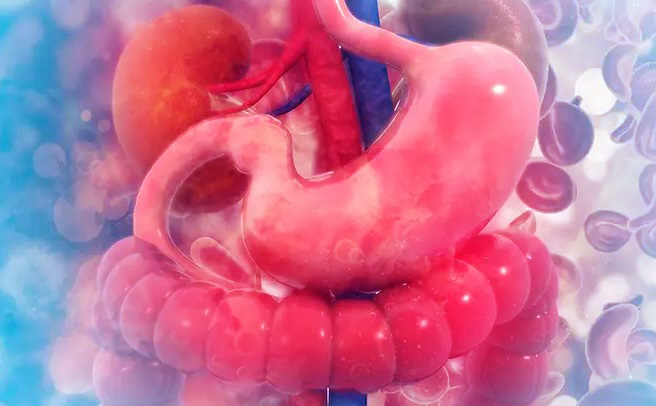Nikhil Prasad Fact checked by:Thailand Medical News Team Aug 16, 2025 6 months, 1 week, 1 day, 16 hours, 40 minutes ago
Thailand Medical News: COVID-19 Complications Went Beyond the Lungs
As the world grappled with the COVID-19 pandemic, doctors at The First Hospital of Shanxi Medical University in China noticed a troubling trend — a sharp rise in patients hospitalized with gastrointestinal bleeding (GIB). These weren’t just isolated incidents. A new study shows that the number of GIB cases increased nearly fourfold during the full-blown wave of the pandemic, prompting concerns about how the virus and its treatments may be impacting the digestive system.
 COVID-19 Pandemic Saw Surge in Gastrointestinal Bleeding Cases
COVID-19 Pandemic Saw Surge in Gastrointestinal Bleeding Cases
Researchers from The First Clinical Medical College and the Department of Gastroenterology at Shanxi Medical University carried out a retrospective cohort study comparing two groups of GIB patients: one group admitted in the early stages of the pandemic (Dec 2020–Jan 2021), and another during the full-blown pandemic (Dec 2022–Jan 2023). This
Thailand Medical News report highlights the outcomes of 142 patients, revealing how COVID-19 infection, its complications, and related medical care strategies affected GIB management and patient prognosis.
More ICU Admissions Less Endoscopy
During the full-blown pandemic, not only did GIB cases increase dramatically (rising from 53 to 89 cases), but these patients also required intensive care more often (16.9% vs. 3.8%) and had a greater need for anticoagulant treatment (38.2% vs. 5.7%). Alarmingly, fewer patients underwent essential endoscopic examinations (41.6% during the pandemic vs. 73.6% in the earlier period), despite these being standard procedures to diagnose and manage internal bleeding.
COVID-19 positive patients showed worse blood clotting profiles. Their prothrombin times (PT) and D-dimer levels were significantly higher, suggesting greater bleeding and clotting risks. Interestingly, while many of these patients were older and more fragile, their mortality rate didn’t significantly rise — 7.6% compared to 2.7% among COVID-negative patients — though the trend was concerning.
NSAIDs and Mucosal Damage Increased Risk
Another important finding was the increased use of non-steroidal anti-inflammatory drugs (NSAIDs), likely taken by patients to manage COVID-related fevers and body aches. These drugs are known to irritate the stomach lining, and 43.5% of NSAID users showed visible mucosal damage during endoscopy, further compounding bleeding risks.
Despite the rise in cases and complications, doctors discovered that conservative treatment (using medication instead of invasive procedures) was often sufficient. For stable patients, this meant hospital stays, blood transfusions, rebleeding, and readmission rates were not significantly different between those who had an endoscopy and those who didn’t.
Conclusions
The study shows that gastrointestinal bleeding became more common and complex during the peak of the COVID-19 pandemic. Although fewer patients underwent
endoscopy, conservative treatment appeared effective in most cases. However, close monitoring, proper use of anticoagulants, and careful avoidance of NSAIDs remain essential. Doctors should consider early endoscopic intervention in patients showing signs of unstable bleeding. The findings serve as an important reminder that COVID-19 impacts more than just the lungs — it also poses hidden dangers to the digestive system, especially in older or medicated individuals.
The study findings were published in the peer reviewed journal: Annals of Medicine
https://www.tandfonline.com/doi/full/10.1080/07853890.2025.2529580
For the latest COVID-19 News, keep on logging to
Thailand Medical News.
Read Also:
https://www.thailandmedical.news/news/covid-19-destroys-the-nutrient-absorption-capabilities-of-the-gastrointestinal-tract
https://www.thailandmedical.news/news/covid-19-virus-could-be-behind-alarming-rise-in-rare-cancers-like-gastrointestinal-stromal-tumors
https://www.thailandmedical.news/news/breaking-autopsy-studies-by-king-s-college-london-reveal-that-covid-19-is-causing-severe-gastrointestinal-damage-especially-on-the-ileal-peyers-s-patc
